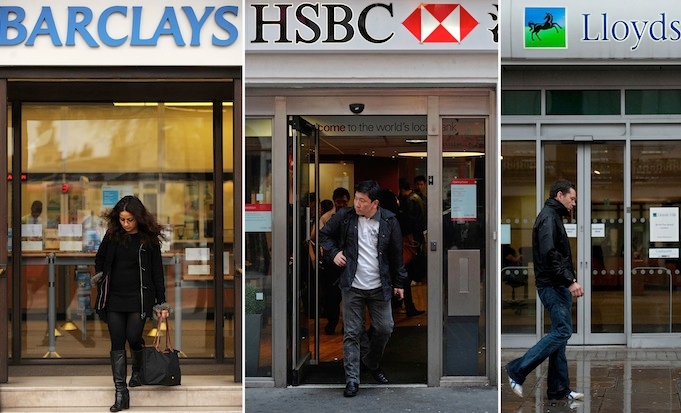It’s been nearly two years in the making but now a sweeping investigation into Britain’s £10 billion-a-year banking business has concluded that overdraft fees should to be capped. The recommendation by the competition watchdog is part of a package of measures that could save customers £1 billion over five years.
The Competition and Markets Authority’s report into personal and business banking says competition is weak in the banking industry. But it stopped short from suggesting that the biggest banks should be broken up, saying that would not ‘significantly improve’ the market.
The regulator said it was hard for customers to work out whether they were getting good value from their banks because charges were so complicated. In addition, many customers thought it was difficult and risky to change banks. Consequently, the CMA said nearly half of consumers had stayed with their bank for more than 10 years and nearly 40 per cent for more than 20 years. That is despite the fact that the CMA found that current account customers could save £260 a year by switching to a better deal. Other proposals set out by the CMA include: the Financial Conduct Authority to review ideas for banks to publish their service records and collect the data twice a year; the FCA to work on ‘prompts’ banks could send to customers to move their accounts, such as when branches close; customers to be warned by text when they go overdrawn; the new current account switching service – set up three years to guarantee switching – to be beefed up. But campaigners for banking reform immediately criticised the CMA for avoiding measures to radically overhaul the sector. Alex Neill, director of policy and campaigns at consumer body Which?, said: ‘This inquiry achieved little more than to propose basic information measures that the big banks should have introduced years ago. Steps to stimulate switching are welcome but the chance to deliver better banking for call consumers has been missed.’In other news, one in four people over 50 who get divorced end up selling their family home. That’s according to a study by Nationwide Mortgages. It also found that as well as having to deal with the stress of potentially losing the family home, nearly 60 cent of divorcees over 50 (so-called ‘silver divorcees’) said their break-up had left them worse off in the money stakes. Nearly a third of women over 50 said their divorce had left them struggling financially, compared with just over a fifth of men.
According to the Office of National Statistics, the divorce rate among the over-50s has risen by 75 per cent in the past 20 years, while falling across the rest of the population.
Finally, new research from Direct Line Home Insurance reveals the ‘plumber premium’ if you need a tradesperson to fix a leak in an emergency. Plumbers with an emergency call out rate inflate their usual hourly rate by on average of 117 per cent with some plumbers quoting up to £300+VAT an hour to tackle an emergency situation. This is just the cost for the labour; householders would find their bill even higher when parts and materials are included.






Comments